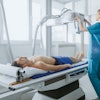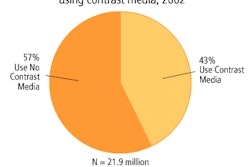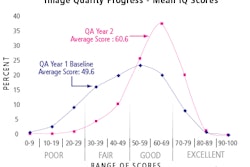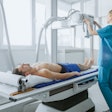VIENNA - The European Congress of Radiology will remain in Vienna at least through 2009, the ECR said yesterday. Prof. Dr. Christian Harold, director of the radiology department at Vienna General Hospital and an ECR board member, said the Austrian capital’s excellent hotels, restaurants, and public transportation facilities, as well as its unique geographical setting at the heart of Europe, make Vienna an easy choice as host city. This is the 10th year in Vienna for the ECR, which opened Friday at the Vienna International Centre.
ECR executive director Peter Baierl said that approximately 13,000 participants have registered for the event so far, which will include about 1,300 presentations and 950 electronic poster presentations before it closes March 9.
The Congress is growing at a rate of about 10% a year, but the Vienna International Centre is growing with it, having added three new exhibition halls. The Centre "fits our needs", and will remain the host facility, Baierl added. The Centre pumped about 64 million euros into the city’s economy in 2003, and generated more than 164,000 overnight stays in local hotels, the ECR said.
This year’s ECR also inaugurates the Virtual Congress, which by the end of March will give participants online access to audio and images from this year’s meeting. The system will also make it possible to hold virtual sessions on selected topics dealing with radiology. The sessions will be led by an expert who acts as a host presenter and answers cyber-participants’ questions. Free to ECR members and participants in developing nations, the service will be available to all other interested participants at a cost of 15 euros a month, Baierl said.
In developing countries with little access to high-speed Internet connections, satellite centers are envisioned to enable radiologists and trainees to gather at a single location to attend the special sessions, said Professor Helen Carty, ECR president.
Among this year’s technical innovations, all attendees’ badges now carry microchips, which are read automatically by panels placed at the entrance to the lecture halls. Designed to monitor CME accreditation and "research points," the microchips will note when attendees enter lecture halls -- and record how long they stay there.
By AuntMinnie.com staff writersMarch 6, 2004
Related Reading
View from the president: Professor Helen Carty scans ECR 2004, March 4, 2004
Copyright © 2004 AuntMinnie.com


















